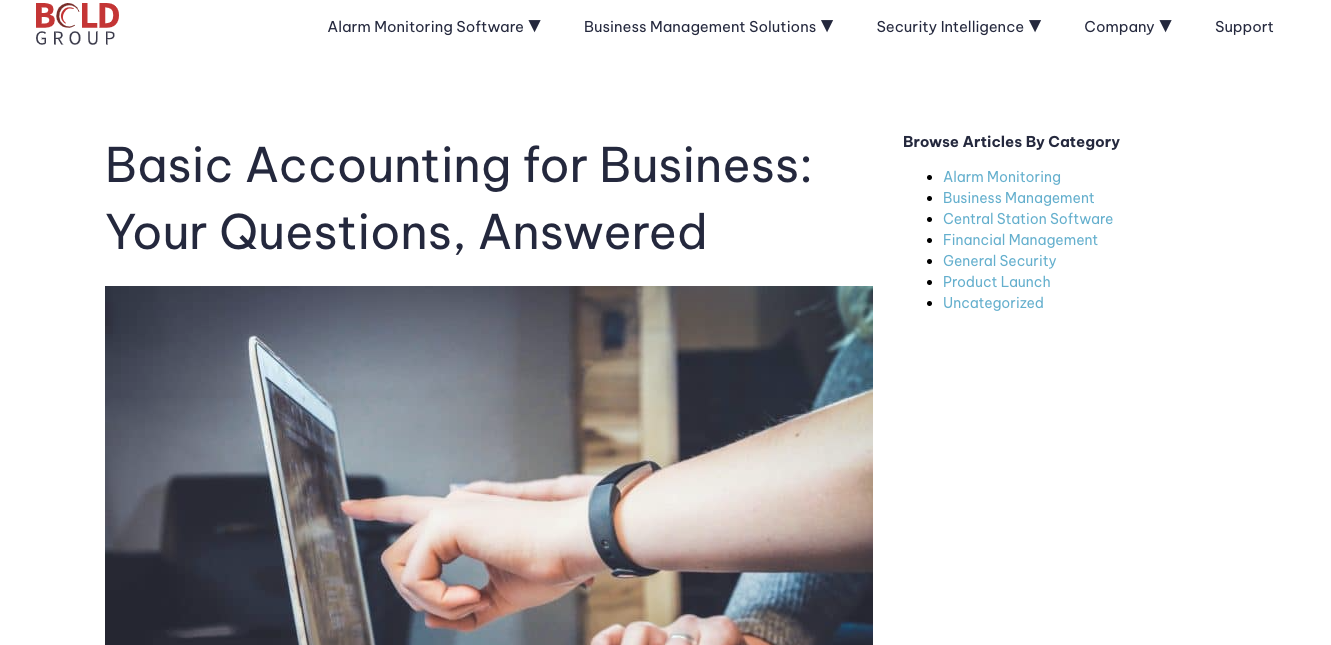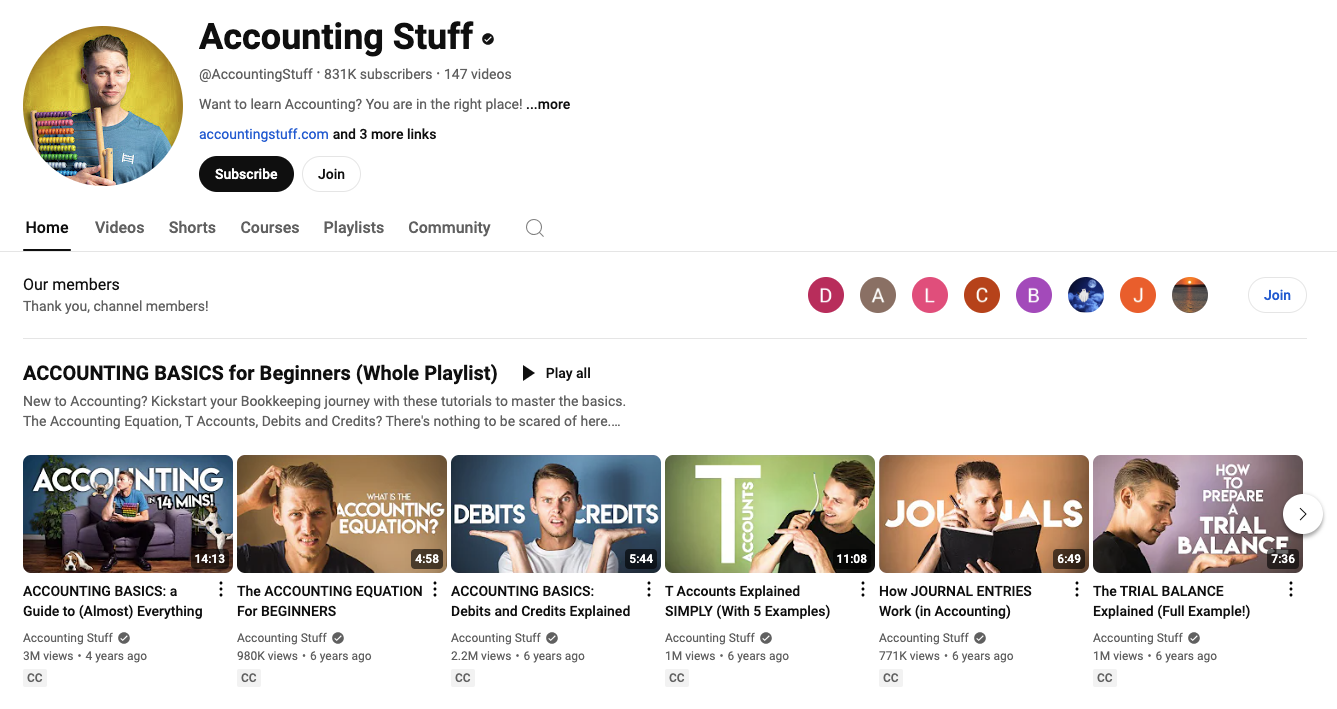Market Your Accounting Business: Key Strategies for 2025
Table of Contents
Marketing for accountants refers to the methods and strategies used to promote accounting services and attract clients.
Marketing for CPAs and accountants is more than just advertising or cold calling. Accounting marketing is a comprehensive approach including digital channels, offline networking, and relationship building.
An effective marketing strategy is all about:
Building brand awareness
Highlighting your expertise
Developing trust
Building relationships
Understanding where to market for your accounting business
Consistently reaching your target audience where they are most active
Accountants often think that client referrals are enough. But without a clear marketing strategy, you risk leaving money on the table.
Much like other professionals, accountants need to connect with clients through both digital and offline efforts. While online platforms are important, offline strategies still play a vital role. This is especially true when building relationships with local businesses.
1. Client Acquisition
The top priority for accounting firms is to acquire new clients. Marketing helps you showcase your services and attract prospects. An effective marketing strategy for accounting firms allows you to reach the right people at the right time.
2. Brand Awareness and Visibility
Brand awareness, or making people familiar with your brand, is a crucial first step.
The more often people see your brand, the more likely they are to trust and recognize it.
Use accounting marketing strategies to build awareness. This will ensure your firm is top of mind when businesses or individuals need financial help.
3. Trust and Credibility
Your reputation as a trustworthy accounting firm is vital. By sharing valuable content, from blog posts to financial reports, you can build credibility with your audience.
Establishing trust through consistent marketing efforts is what will convert leads into long-term clients.
4. Building Relationships
Marketing isn’t just about getting new clients; it’s about maintaining relationships with your current clients. Communicating through email newsletters, webinars, and social media keeps your firm top of mind.
5. Market Differentiation
Market differentiation is all about what sets your accounting firm apart.
Perhaps your business stands out for client service, industry expertise, or technology use.
Your marketing strategies should highlight your strengths and show how you’re different from competitors.
Get a Free, Instant Marketing Report for Your Accounting Firm
Take the guesswork out of how to market for your accounting business with our FREE, instant Marketing Report. Get insights into your website performance and local SEO rankings, discover new places to list your local business online, and more! All sent to your inbox with the click of a button.
Simply fill out the form below to use our FREE Marketing Report generator. Happy marketing!
To compete in today’s market, accounting firms need to leverage digital marketing channels effectively.
Below, we'll explore the top digital channels for accounting firms in 2024.
SEO (Search Engine Optimization) is all about improving your website’s visibility on search engines like Google. By optimizing your content and technical setup, you can drive organic traffic to your website.
Why SEO is Crucial for Accountants:
The majority of clients start their search for accounting services online. When your firm ranks higher in search results, you increase your chances of attracting those leads.
Best SEO Strategies:
Use relevant keywords like "CPA firm in [city/state]" and "tax services for small businesses."
Create content that answers common questions your clients have, such as "How to reduce business tax liabilities."
Optimize your Google My Business profile to improve local search rankings.
Use SEO tools like Google Analytics and Yoast to measure performance.
PPC is a digital marketing model where you pay each time someone clicks on your ad. PPC ads are a great way to get quick visibility on search engines or social media platforms.
However, selecting the right keywords is critical to its success.
How PPC Advertising Works:
You bid on specific keywords related to your services, like "accounting for small businesses" or "CPA services near me." When someone searches for those terms, your ad appears, and you pay only when they click.
However, choosing the right keywords is vital—especially those that have buyer intent.
Why Choosing Buyer-Intent Keywords is Crucial:
Not all keywords are equal. While some may drive traffic to your site, they may not generate the right traffic.
Keywords like "how to do taxes" might attract users who are looking for DIY information. In essence, they are not interested in purchasing any services.
Rather, concentrate on keywords that indicate buyer intent.
These are terms that show the searcher wants to hire a service. Examples include "best CPA for small business" and "tax preparation services."
Why PPC is Effective:
PPC ads offer fast results. While SEO takes time, PPC can give you instant visibility. But to make it cost-effective, you must avoid wasting ad spend on clicks that don’t convert. This is why keyword selection is so important—target keywords that signal your audience is ready to take action.
How to Select the Right Keywords:
Focus on buyer intent. Utilize keywords that indicate the searcher is prepared to interact or make a purchase. Examples include "hire an accountant" or "best accounting firm near me."
Avoid overly broad terms. General keywords like "accounting" can lead to many searches. However, they do not always attract people ready to buy. Specific, long-tail keywords, like "small business tax preparation near me," will yield better results.
Monitor and adjust. Regularly track which keywords are driving conversions and adjust your campaigns accordingly.
Platforms to Use:
Google Ads: Ideal for targeting people actively searching for accounting services with high buyer intent.
Facebook Ads: Use Facebook Ads to target small business owners based on location, interest, and business size.
Image Source: Postermywall
Why Social Media Works for Accountants
Social media allows you to engage directly with your target audience, share valuable content, and build relationships. You can also use social media to put your brand on display.
Strategies for Social Media Marketing:
LinkedIn: Share industry-specific insights, client success stories, and case studies to attract professionals and businesses.
Facebook: Post engaging content, such as quick tips on tax-saving strategies or changes in tax laws, to build a local audience.
Twitter: Use Twitter to share quick updates or industry news and participate in trending discussions around accounting topics.
Platforms to Use:
LinkedIn Ads: Perfect for targeting professionals and businesses in need of accounting services.
Facebook Ads: Use detailed targeting to reach small businesses in your area.
Email marketing remains one of the most effective ways to stay in touch with both existing clients and potential leads.
Use email marketing campaigns to keep your clients engaged and informed. Share information about important tax updates, financial tips, and your services.
Why Email Marketing is Effective:
Cost-effective: Sending emails is affordable compared to other ways to reach out. This makes it a smart tool for keeping clients informed.
Personalized: Segment your email lists based on the type of services your clients need. For example, create separate segments for tax planning, bookkeeping, or financial reporting.
Build relationships: Consistent email communication helps build stronger relationships with your clients and can lead to repeat business.
Strategies for Email Marketing:
Build a targeted email list of current clients and prospects.
Create segmented email campaigns that focus on specific services, such as tax preparation or accounting services for small businesses.
Use email newsletters to provide valuable tips, service updates, and insights on accounting trends.
Platforms to Use:
Mailchimp: For easy-to-build automated campaigns.
Constant Contact: Great for segmenting email lists and tracking performance.
Content marketing involves creating valuable, relevant content that helps educate your audience while promoting your services. Content is a key component of digital marketing for accountants.
Why Content Marketing is Effective:
Content marketing establishes you as an expert in your field. By sharing useful information through blogs, videos, or guides, you make your firm the top choice for financial advice.
Here are some examples of content marketing for accountants.
Blogs are a simple yet effective way to engage your audience and improve your SEO rankings. Write about topics like "how to optimize your business taxes" or "common tax mistakes small businesses make."
Best Blogging Practices:
Post regularly. Consistent, high-quality content builds trust.
Focus on SEO keywords like "digital marketing for accountants" and "accountant marketing" to improve your rankings.
Accounting Stuff creates educational content about accounting on YouTube.
Videos are a highly engaging content format, perfect for explaining complex topics like tax planning or financial forecasting.
Best Practices for Video Marketing:
Create explainer videos that simplify tax tips or accounting best practices.
Post your videos on YouTube, your website, and social media platforms for maximum exposure.
A Tax Planning Guide from 360 Financial
Guides provide in-depth insights and serve as lead magnets. You can use them to demonstrate your expertise and capture contact details.
Best Practices for Guides:
Create downloadable guides on topics like "Year-End Tax Planning for Businesses" or "How to Manage Cash Flow."
Offer these guides in exchange for email addresses to build your list.
Podcasting helps you connect with your audience more deeply. You can share valuable insights, interviews, and stories about accounting.
Why Podcasting is Effective:
Community Building: A podcast can create a loyal community of listeners.
Lead Generation: Direct listeners to your website or invite them to sign up for your services.
Visibility: A podcast reaches an audience who might prefer listening over reading or watching videos.
How to Get Started:
Choose a podcast topic related to your firm’s specialty, such as small business tax strategies or financial planning.
Use platforms like Podbean or Buzzsprout to host your podcast.
Webinars let you host live online seminars. They give you a chance to connect with your audience and answer their questions right away.
Why Webinars Work for Accountants:
Educational Value: Webinars help you showcase your expertise by offering in-depth insights on accounting topics.
Lead Generation: Require attendees to register with their email addresses to capture leads.
Engagement: Webinars allow for interactive Q&A sessions, which help establish trust and build relationships.
Platforms to Use:
Zoom: A popular option for hosting live webinars.
GoToWebinar: Offers robust features for webinar management and audience engagement.
While digital marketing dominates, offline marketing remains a valuable way to connect with clients, especially in local markets.
Networking is still one of the most effective ways to grow your accounting business. Join local business associations or industry-specific groups where you can meet potential clients and build relationships.
Sponsoring local business events, industry conferences, or community workshops increases your firm’s visibility. Make sure the events you sponsor align with your target market.
Public speaking at industry events or hosting your own workshops can position you as a thought leader. Offer to speak on topics relevant to your target audience, such as tax planning or accounting best practices.
1. Client Testimonials and Referrals
Client testimonials build trust and serve as social proof. Encourage happy clients to share their experiences through reviews or case studies.
2. Lead Magnets
Lead magnets are free resources, such as tax guides or accounting checklists, that you offer in exchange for a prospect’s email address. This helps you build your email list and nurture leads.
3. Upselling and Cross-Selling
Offer additional services to existing clients. For example, if a client uses you for tax preparation, upsell them on financial planning or bookkeeping services.
At UPBEAT, we specialize in creating custom marketing strategies for accounting firms. Our focus is on strategies that attract your target audience and convert leads into loyal clients.
Need help setting up email marketing campaign or developing engaging content marketing plans? We have the expertise to help. With UPBEAT digital marketing for accountant, we provide tools to ensure you see real-time results.
Our team creates cost-effective marketing solutions tailored to your specific needs. Ready to improve SEO, run targeted social media campaigns, and enhance your overall marketing approach? UPBEAT has the tools and strategies to help your firm succeed.
Let us help you craft a cost-effective marketing strategy that drives growth and success.
To help your accounting firm succeed in 2024 and beyond, use both digital and offline marketing strategies. Combining SEO, PPC advertising, webinars, and email marketing with local networking will position your firm for success.
Remember, marketing is a long-term investment. With consistency and the right strategies, your accounting firm can grow and succeed in a competitive marketplace.














